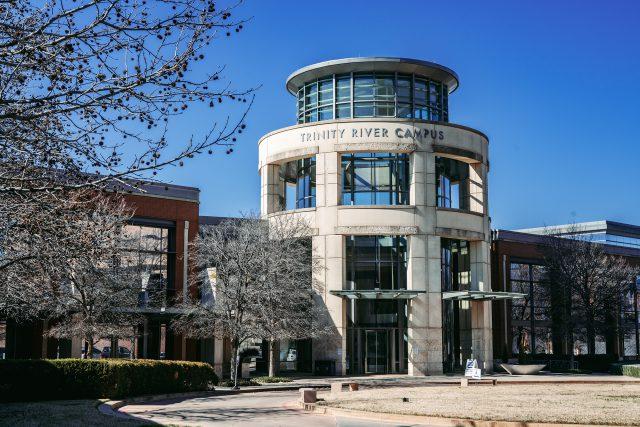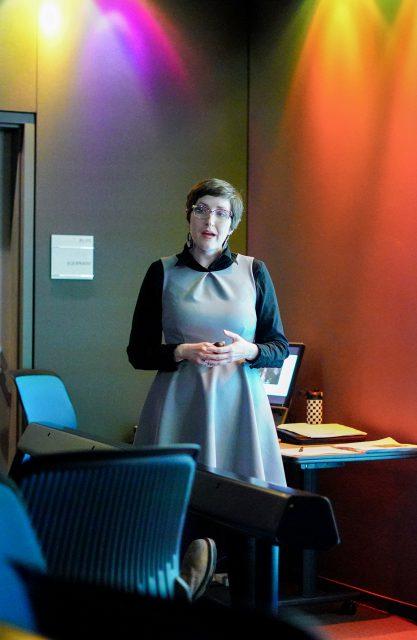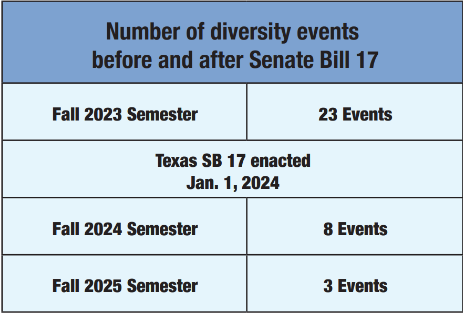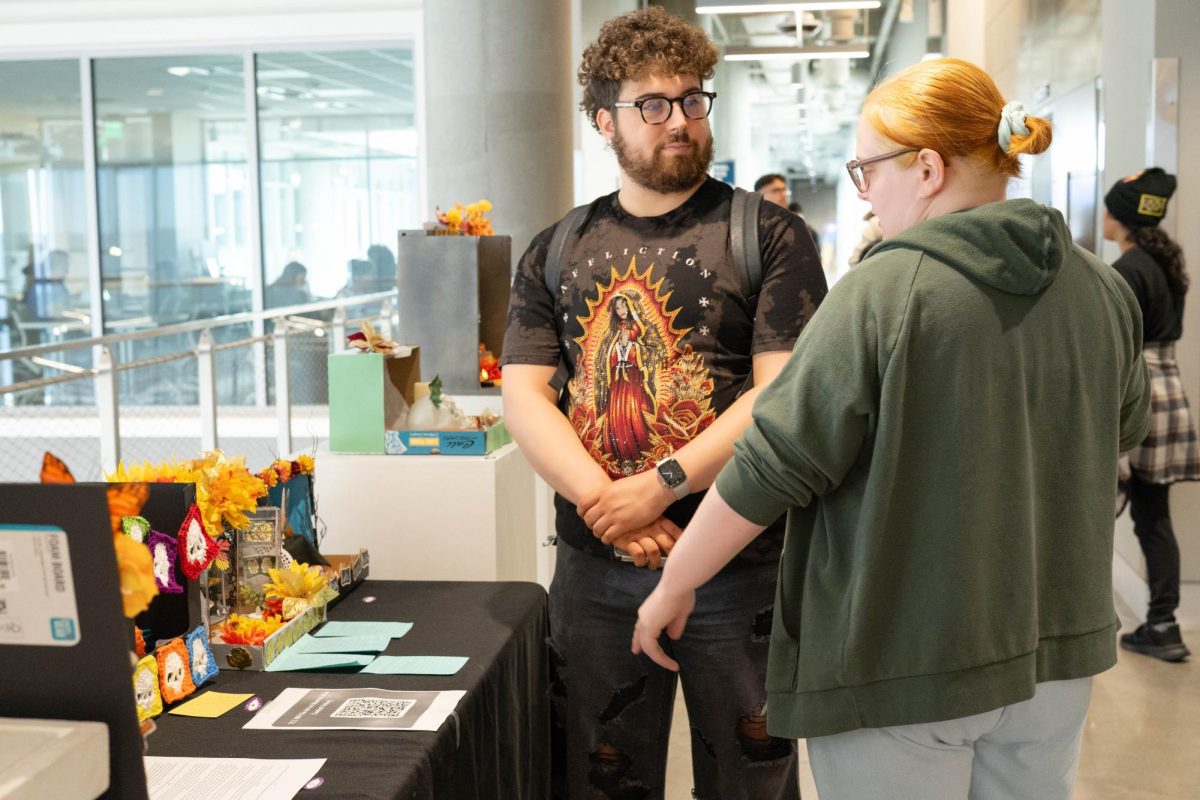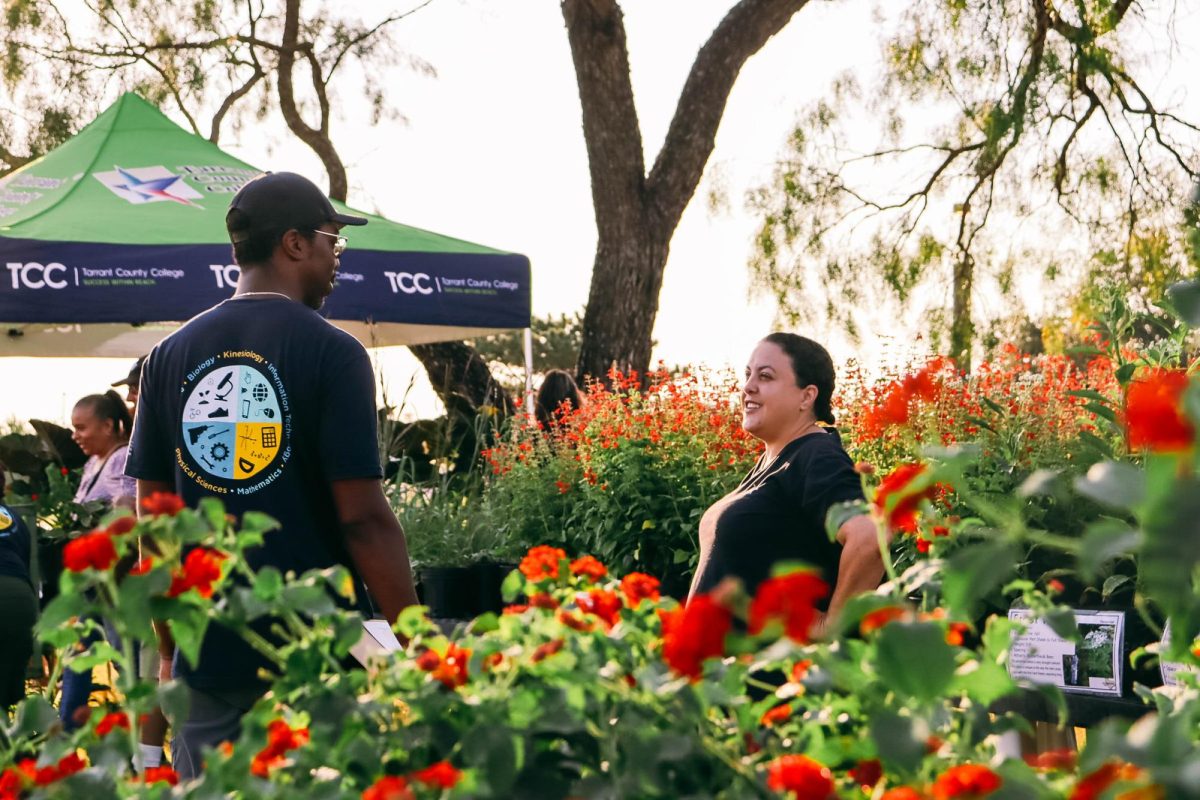By George Puente/reporter
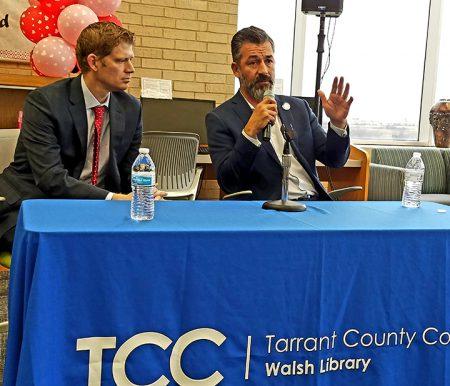
Two members of the Texas House of Representatives spoke to students at the Walsh Library on NW Campus Feb. 19 about the importance of political involvement within their communities.
Democrat Ramon Romero has represented District 90 for four years, and Republican Matt Krause is serving his fourth term in the Texas Legislature from District 93.
The uVote forum was organized by Elizabeth Everett with the help of the Student Government Association and the library to inform students about their local representatives and to encourage them to pump the brakes on bitter, emotional discourse.
“It comes down to priorities because if Texas were its own country, the economy would rank the 10th largest in the world,” Krause said about the state’s $217 billion budget. “It is the most important thing we do, but we have to deal with competing values.”
Romero agreed, calling it a priority for the budget dollars to be distributed evenly.
Romero and Krause were asked what recent legislation affected students.
“If you default on your student loan, you do not lose your license to ply a trade,” Krause said.
Romero said newly graduated physicians could choose to practice in a rural area that has little to no health care facilities, and their loan will be paid off.
Both representatives said community college plays a central role in their communities and thought well of the 60/30 plan that is a goal for 60 percent of students to have a degree or certification by the year 2030.
“When the topic of sanctuary cities came up, I came in with my position,” he said. “But when I talked to my colleagues from the [Rio Grande] Valley, I gained another perspective. No stands on the issue were changed, but it changed how we talked about it.”
Nursing student Hannah Lochtefeld said she enjoyed the presentation.
“I didn’t know about the 60/30 plan,” she said. “And I also didn’t realize that if you default on your student loan, they can’t take your certification or license away.”
Representatives encouraged students to volunteer for local government and civic organizations in an effort to become involved in community affairs.























